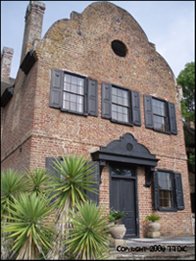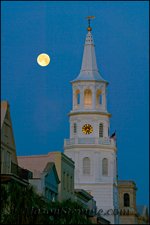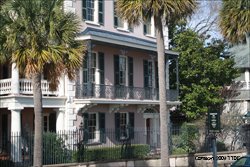|
Charleston WeatherCharleston weather is an attraction in and of itself! The seasonal changes are mild, but there is still a distinct winter, spring, summer and fall. The peak season is of course spring and summer, but fall is a great time to visit as well. January tends to be the coldest month (anywhere from 30°F - 60°F) while July and August are known for their big heat (80°F – 100+°F). No mater what time of year it is, the humidity is usually a factor, making the winters feel colder (sometimes more than some northern states with less humidity) and the summers hotter (leaving you wondering if you can ever take a solid deep breath again). Usually in the summer months the humidity is so high that you’ll see a 30% chance of rain predicted every day of the week. In reality, it may or may not rain at all, and if it does, it is typically for a short time period… since the skies are just aching to get wrung out. This rain is also normally localized so some days it will rain for 15 minutes Downtown and not ever at the beaches, or vice versa. That leaves February, March, April, May, June, and October as popular months to visit the Lowcountry. Charleston weather in these months are moderate and typically full of sun. (September is usually slow due to school getting back into session and November & December carry big holidays… which are actually GREAT times of the year to celebrate in Charleston). Below, you’ll notice the precipitation highs are greatest in August and September. Not only is it the most humid time of year, but they are historically, the best months to expect possible hurricanes (hurricane season actually extends from June though October). Don’t let that stop you from planning a visit during that time however. As with any travel destination, weather is always a hit or miss and while hurricanes may be possible, they don’t occur every year. It’s a gamble… just like traveling north for the holidays. Could there be a blizzard, light snow or a green Christmas? Who knows! The best part of hurricanes is that they are predictable so you’ll have plenty of time to be made aware and take action if needed. Rest assured that the City of Charleston and establishments such as hotels, restaurants and attractions have hurricane action plans that are implemented in the event of a looming hurricane. There are steps taken to be sure all guests and visitors are kept knowledgeable and safe at the onset of a possible threat. Enough on hurricanes… check out the great Charleston weather temperatures below and get packing! Charleston Weather Average Temperatures:
Fun Charleston Weather Facts: July is, on average, considered to be the hottest month of the year. However I’d like to throw my vote in for August! It doesn’t seem to start cooling down until mid September and August is sweltering! The highest recorded temperature in Charleston was 104°F in 1985. I’m sure the heat index was much higher. The coolest month on average is considered to be January. This is true, yet one year my husband and I were sunbathing on Folly Beach in 85°F sunny weather on January 2nd. Of course we’ve also seen the other end of the spectrum when it snowed. The lowest recorded temperature in Charleston was 10°F in 1985. What a year for extreme temperatures! The rainiest month on average, is August, but Charleston is not particularly known for its wet weather.
Back To Charleston Facts & Figures Return to Things To Do In Charleston Home Page |
Find Charleston Lodging...
Quick Links
Top 10 BEST
Things To Do In Charleston








